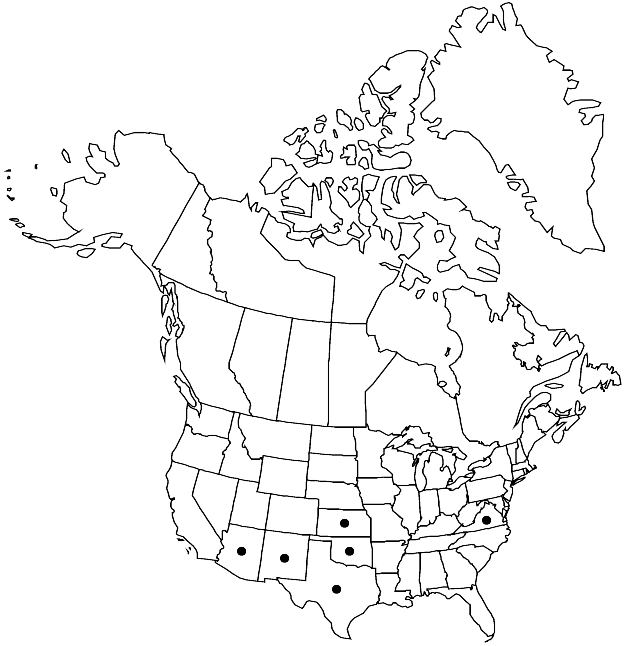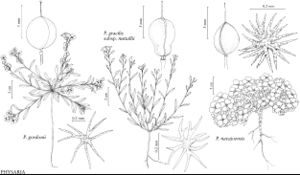Difference between revisions of "Physaria gordonii"
Novon 12: 323. 2002.
FNA>Volume Importer |
FNA>Volume Importer |
(No difference)
| |
Revision as of 20:20, 24 September 2019
Annuals, biennials, or perennials; (short-lived); with a fine taproot; usually densely pubescent, trichomes (sessile or short-stalked), 4–7-rayed, rays distinct and furcate or bifurcate, (nearly smooth to finely tuberculate). Stems several from base, erect to decumbent or prostrate, (unbranched or branched, sometimes densely leaved), 1–3.5(–4.5) dm. Basal leaves: blade obovate to broadly oblong, 1.5–5(–8) cm, margins lyrate-pinnatifid, dentate, or entire. Cauline leaves: (proximal sometimes petiolate, distal sessile); blade linear to oblanceolate, often falcate, 1–4(–7) cm, (proximal with base sometimes cuneate), margins entire, repand, or shallowly dentate. Racemes dense. Fruiting pedicels (divaricate-ascending, sigmoid or, sometimes, nearly straight), 5–15(–25) mm. Flowers: sepals elliptic or oblong, 3–6.5 mm, (lateral pair subsaccate, median pair thickened apically, cucullate); petals (widely spreading at anthesis, yellow to orange, claw sometimes whitish), cuneate, obdeltate, or obovate, (tapering to claw), 5–8(–10) mm, (claw often widened at base). Fruits (shortly stipitate), subglobose, not or slightly compressed, (3–)4–8 mm; valves (not retaining seeds after dehiscence), glabrous throughout; replum as wide as or wider than fruit; ovules (8–)12–20(–26) per ovary; style (1.5–)2–4(–5) mm. Seeds flattened. 2n = 12, 32.
Phenology: Flowering Feb–Jul.
Habitat: Sandy or light soils, rocky plains, caprock ledges, gravelly brushland, sandy desert washes, stream bottoms, pastures, roadsides, abandoned fields
Elevation: 150-1700 m
Distribution

Ariz., Kans., N.Mex., Okla., Tex., Va., Mexico (Chihuahua, Sonora).
Discussion
Physaria gordonii was reported from Virginia in 1987 by Robert Wright from a Hampton Shale roadcut along the Blue Ridge Parkway, where it was probably a short-lived waif.
Subspecies densifolia, of Lincoln County, New Mexico, of which there is now more material than Rollins had available in 1993, appears to represent a suite of environmentally determined, variable, and intergrading characteristics that does not merit taxonomic recognition.
Selected References
None.
